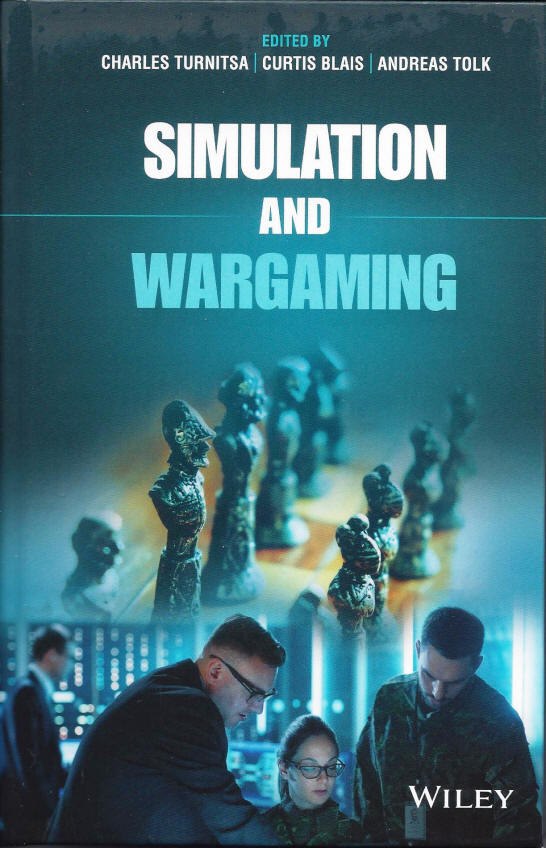
Published by Wiley, 2022, 416 pages, ISBN #978-1-1196-0478-5.

Both wargames and simulations require a model (in the most
general sense of the word) of the domain of interest.
For a wargame/simulation system, the model must be consistent throughout
the system. This commonality is
difficult to achieve when the model resides only in the minds of the creators.
An ontology provides a significant starting point for a well-defined
model by identifying and defining all of the potentially needed components of
the model and their relationships.
For some domains, the ontology may also identify the processes that connect
causes to results; however, for domains involving human conflict, many of these
processes are ill-defined. These
ill-defined processes must be supplied by human wargamers or by calls to
theoretical or probabilistic algorithms in the simulation.
Thus, in human conflict domains, the ontology supplies a framework for
the model definition and identifies the places where decisions are needed on
wargaming or simulation algorithms.
In this chapter, I will describe the Modern Conflict
Ontology and show how it provides the components that apply to a (generally)
theater-level conflict. Then I will
show how the ontology specifies the places where calls to either the human
decisions or algorithmic decisions are needed.
I will conclude with observations on modeling human conflict at different
levels of granularity.
More information can be found here.
If you arrived here using a keyword shortcut, you may use your browser's "back" key to return to the keyword distribution page.
| HARTLEY
CONSULTING Solving Complex Operational and Organizational Problems Dr. Dean S. Hartley III, Principal |
|